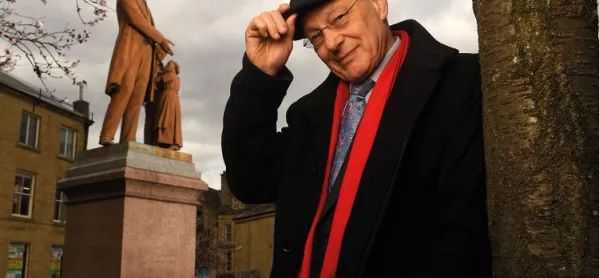An army of grandparents is being sought to bypass teachers and help prepare today’s youngsters for an economic future filled with robotics and artificial intelligence.
John Baruch, an astrophysicist from Bradford, believes that practical science is the key to preparing for the “fourth industrial revolution”, but that England’s school system is failing to deliver.
He told Tes: “We are cutting out the practical science. Looking internationally, we are going the wrong way. Other people are looking at practical science and saying ‘we need to do that’. Other people are thinking about innovation and creativity.
“We are looking at facts and education as it was 100 years ago, and that was for a society that we had 100 years ago - a vast colonial empire of administrators and people who ran steam engines.”
The 74-year-old wants to enlist grandparents to help their grandchildren to think like scientists, and singles out the older generation because “in many poor families, it was the grandparents who held the family together”.
A visiting professor in four different universities, he has already a track record in making things happen, having helped persuade education authorities in Beijing to trial practical science in China’s infamous gaokao school leavers exam.
Now his plan is to create a radio soap opera that contains a science project each week that listeners can do, followed up with text messages to those who have registered.
The aim is to give grandparents the tools with which to engage with their grandchildren, and the confidence about their scientific knowledge to help them.
Professor Baruch said: “They actually know a lot of practical science. They don’t call it practical science, but they know about cooking, their hair, personal hygiene, cleaning, gardening, all sorts.
“There’s loads of science in that. And what we want to do is take the science out of that and show them the science they do know, but rather than delivering lots of science about stars and this sort of thing, we want to deliver how to think like a scientist: why does this happen? Ask the right sort of questions.”
He hopes to roll out a nationwide version in Tanzania this November, and is seeking funding to run a similar project in Yorkshire on Bradford Community Broadcasting.
This is an edited article from the 20 April edition of Tes. Subscribers can read the full article here. To subscribe, click here. This week’s Tes magazine is available in all good newsagents. To download the digital edition, Android users can click here and iOS users can click here
Want to keep up with the latest education news and opinion? Follow Tes on Twitter and like Tes on Facebook




